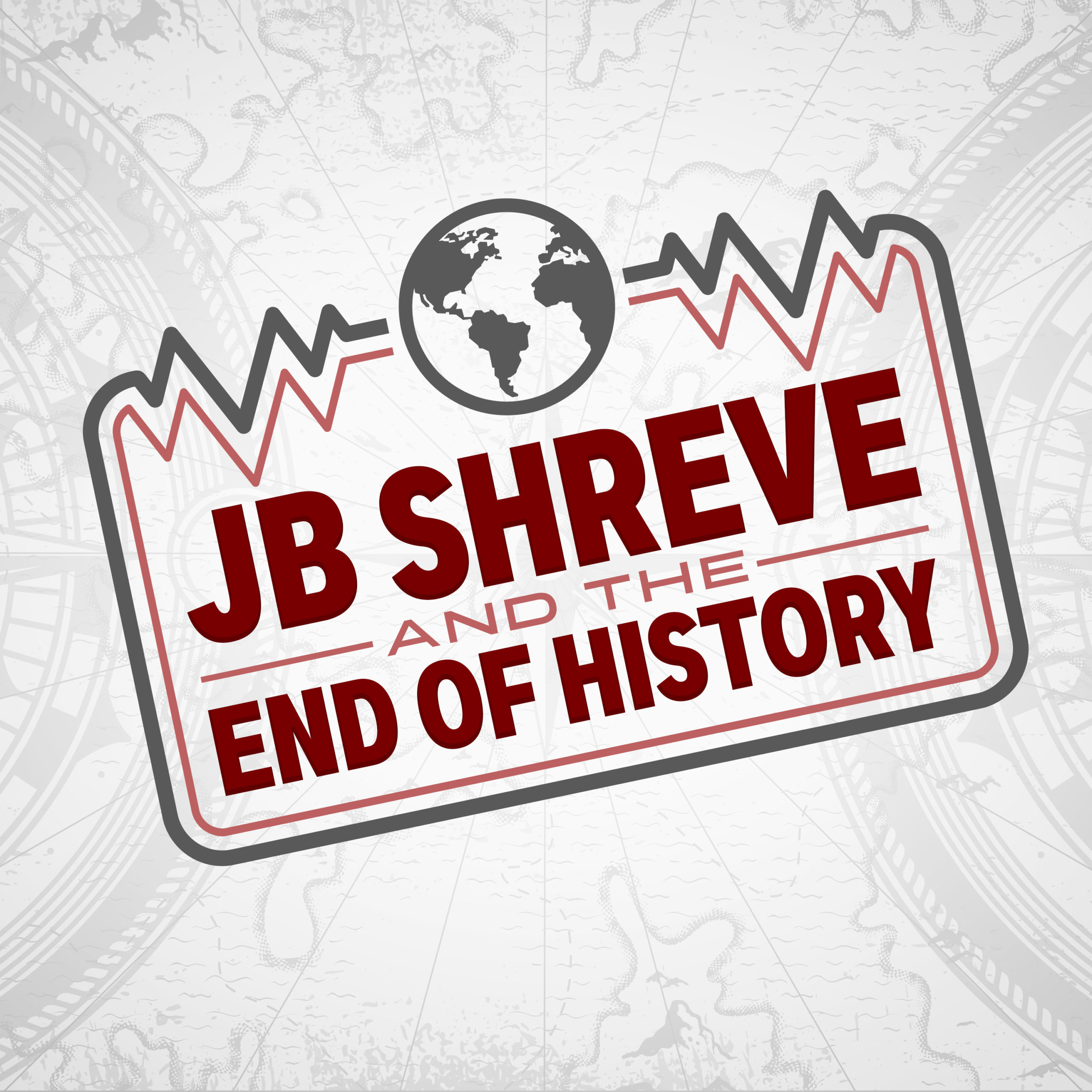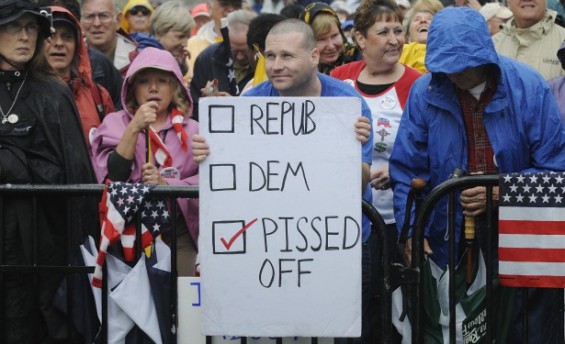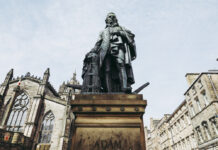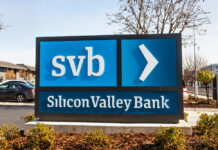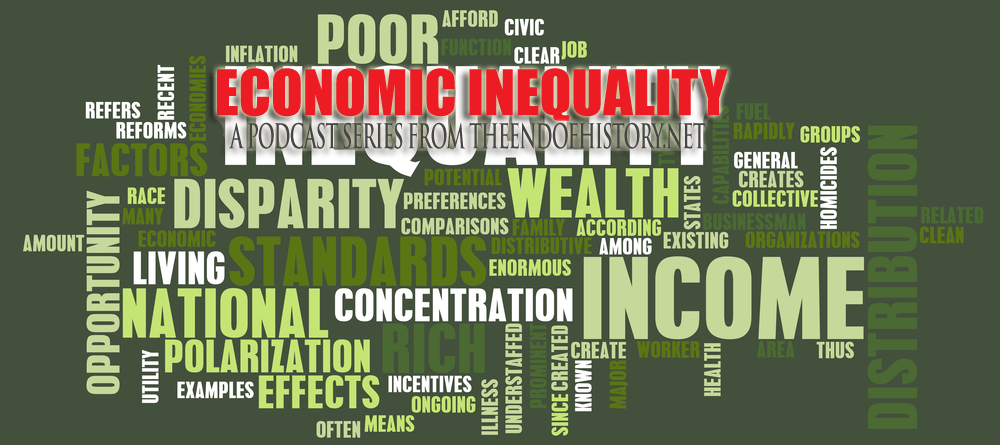This is part four in the series this week from JB Shreve and the End of History.
Unlike those in poverty, when you’re middle class you usually know you are struggling. Struggle defines your lifestyle. Every day is a struggle to keep up with debt payments, tax burdens, job changes and the neighbors next door. It is a very different struggle than that encountered by the poor, but it is one that dominates the political dialogue and psychosis of American culture.

The greatest risk for the middle class is being outdated, irrelevant or outsourced and being moved to the ranks of poverty thus experiencing a generational mobility backwards that almost guarantees the plight of your children will be worse than their own. That great fear of is proving true in recent years. The middle class is shrinking because more have moved to the wrong side of the line that separates the standards of poverty from the standards of the middle class. Once a household falls out of the middle class and into poverty, it is hard to get back to the middle class.

Shifts in the American economy through technological change and globalization have meant greater stress and strain on the middle class. High skilled jobs and workers are rewarded, low skilled jobs and workers are outsourced or automated. Along with globalization, major shifts and swings in the economy affect the middle class’s standard and security of life more than any other. The 2008 economic meltdown resulted in a foreclosure crisis and rise in unemployment. This was almost exclusively oriented within the economic terrain of the middle class.
Recommended Read: Where the Middle Class is Shrinking
In 2016 as America’s politicians were boasting of the economic recovery since 2008 a survey from Michigan University asked, if the economy was improving why were people so angry? Almost half said they would be unable to afford an emergency expense of $400, either with cash or a credit card. They are tapped out financially and just struggling to break even, living paycheck to paycheck every month while fighting to keep their jobs secure from an ever-changing globalized economy. A third of the survey’s middle class respondents said they were worse off than they were the year before. Their wages were in fact rising but prices were rising faster.

The middle class has been the hardest hit by rising medical expenses – the leading cause for personal bankruptcy in America. It is the middle class who also largely understood the Affordable Care Act as a new tax burden in their life to help the poor rather than a new level of access to affordable quality healthcare. Not only were they struggling to pay their own healthcare expenses, the government was now requiring a greater responsibility for them to pay the healthcare of the poor.

The very nature of middle class income has shifted. They are less concerned with moving to a higher income class and far more concerned with attaining income stability. In the modern American economy more of the middle class economy is dependent upon commissions, bonuses, tips, and fluctuating schedules for their income. They worry and strategize constantly about how they will pay for groceries, put gas in the car and what service they are currently paying for that could be canceled to save a little money next month.

And the middle class is keenly aware of the pervading rules of our society and economy. They are concerned not only with surviving but for their children. The rules of success apply to them as much as they do for the poor. How will they pay for their children’s college as tuition rates continue to rise? How will they maintain a stable and healthy home environment, so their children will not fall through the cracks, if the parents are always working?

This is the plight of the people who are carrying the weight of the American economy, its advances and declines. They are stressed out, maxed out, burnt out and increasingly looking for someone to blame. The imbalance of their debt to income ratios reflect the wider experience of their lives – more is required of them than they can any longer afford to pay.
Thus a financially, socially, and emotionally exhausted segment of America’s economy has begun to grow angry. It is no coincidence that many of the studies and statistics noted above were compiled in 2016, the same year that Donald Trump unexpectedly won the presidency. That election was not about the interests of the middle class. It was simply about anger!
From the perspective of the middle class, they are the ones who are working, providing the safety net for the poor. As the poor grow more and more restless with their captivity in the safety net, this unrest communicates only as ingratitude to the working middle class. The fact that the majority of these ungrateful expressions manifest in the lens of the media with black or brown skin further fuels the racial divide.
From the perspective of the middle class the poor are poor because they refuse to work. The middle class are working hard, carrying the burdens of higher prices and taxes that fund welfare for the poor. Most lack the knowledge or understanding to recognize the trap imposed upon the poor. The evolution of the 24 hour news media into echo chambers of our personal perspectives has made this aspect of the problem worse. It is not a lack of will to work that holds the poor back. It is restricted access to better jobs and cost opportunity that would be offset in losing government benefits and access to their families if those jobs were gained. In other words, being poor is an awful experience but it is hardly worth the costs to move from poor status to middle class status.

This is where our social divides are simmering in America. In the age of identity politics both sides of the arguments and anger are easily led to believe we are living in the midst of a racial divide. Race is not the whole story. It is part of the story, but the deeper story is economics.
As the old adage says: follow the money. The flow of money in the American economy, where it goes, how it gets there, and what happens to it once it gets there tells the story of the modern American caste system. It tells the story of our divides, rising frustrations and rising tensions.
